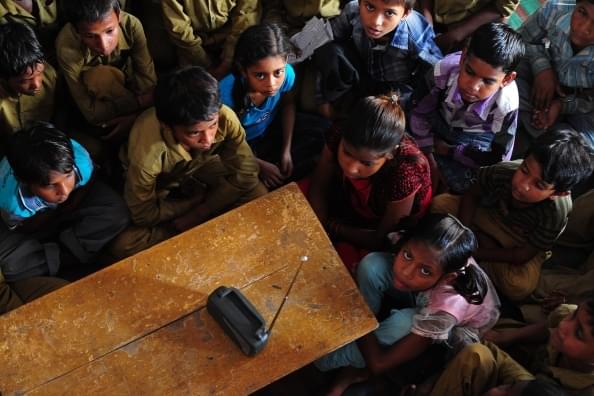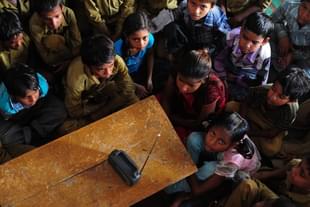Politics
National Policy For Women: A Review Is Needed Or It Would Be Another Opportunity Lost
Shreyas Bharadwaj
Feb 18, 2017, 10:40 PM | Updated 10:40 PM IST
Save & read from anywhere!
Bookmark stories for easy access on any device or the Swarajya app.


In an article published on 13 January, this author had suggested exempting educational institutions run by women, Scheduled Castes, Scheduled Tribes and Other Backward Castes from the RTE Act in the same manner through which we exempt religious minorities (Christians, Muslims and more) as a way to further pervert and render useless this disastrous piece of legislation. As it turns out, the government of India has a chance to do the same in the form of the National Policy for Women 2016.
The draft of the policy as it turns out is silent on the RTE Act. Here is what it claims:
“In conformity with the Right to Education (RTE) Act, 2009, ensuring implementation of quality elementary education across board for all children including differently abled children and other marginalised children will remain a priority. Every effort will be made to effectively implement the RTE Act, 2009 by using the education cess particularly in addressing the infrastructure gap, availability of adequately trained teachers, promoting safe and inclusive school environment etc. in remote and tribal areas.”
And
“Children of migrant families tend to get left out of the school system and existing schemes are not effectively coordinated or implemented. Innovative and accessible educational systems will be developed, especially in large construction sites, salt pan areas, plantations, and other manufacturing zones, which predominantly employ women labour.”
The draft affirms the government’s position that the RTE is good for our society and even seeks to make it more torturous by creating ‘innovative and accessible education systems’ in many areas where a large number of migrant workers are employed. This is not sudden. A few organisations associated with the Catholic church have for long been campaigning for it. In a recent discussion on a national study on the children of migrant and construction workers, conducted by the Don Bosco Research Centre, Matunga, here is what a participant said: “Have a collaborative approach with agencies instead of standalone services and join national campaigns for addressing primary educational rights of children under RTE Act.”
In an example of such innovativeness, Karnataka came out with an activist drafted ‘Policy on the Implementation of Right to Education (RTE) for Migrant Children and Children of Migrant Labourers’. According to the draft of this policy, real estate developers would be legally required to provide education and crèche facilities to children at construction sites! One wonders if this is the usual hafta wasool by activists from developers or something more sinister.
Coming back to the draft of the National Policy for Women 2016, it also has plans to do some social justice type social engineering on the next generation of children. The language used in the draft is a clear indicator of the same:
“Continued efforts will be made for the gender sensitisation of the faculty and curriculum, content and pedagogies for an understanding of concepts of masculinity and femininity and gender stereotypes. Gender champions in schools and colleges will be promoted to ensure gender sensitivity in the educational system.”
Not even god can save India’s children if they get indoctrinated in social justice ideology about controversial issues like savarna gay privilege in their schools. The draft policy opens the door for ill-advised ideologues to indoctrinate India’s children with their misguided ideology.
The government of India still has time to prevent this disaster. Prime Minister Narendra Modi recently constituted a group of ministers to examine the draft of the National Policy for Women 2016.
PM @narendramodi constitutes #GoM to examine draft National Policy for Women, 2016 which aims to ensure equal rights for women
— Press Trust of India (@PTI_News) February 13, 2017
This decision to constitute a GOM to examine the draft gives the NDA government a golden opportunity to turn the policy on its head by creating exemptions for women run/led institutions from the RTE Act and more. One hopes that it won't be another lost opportunity.
Shreyas Bharadwaj is a Hindutvawadi from Mysuru who is interested in writing about cities and public policy.




